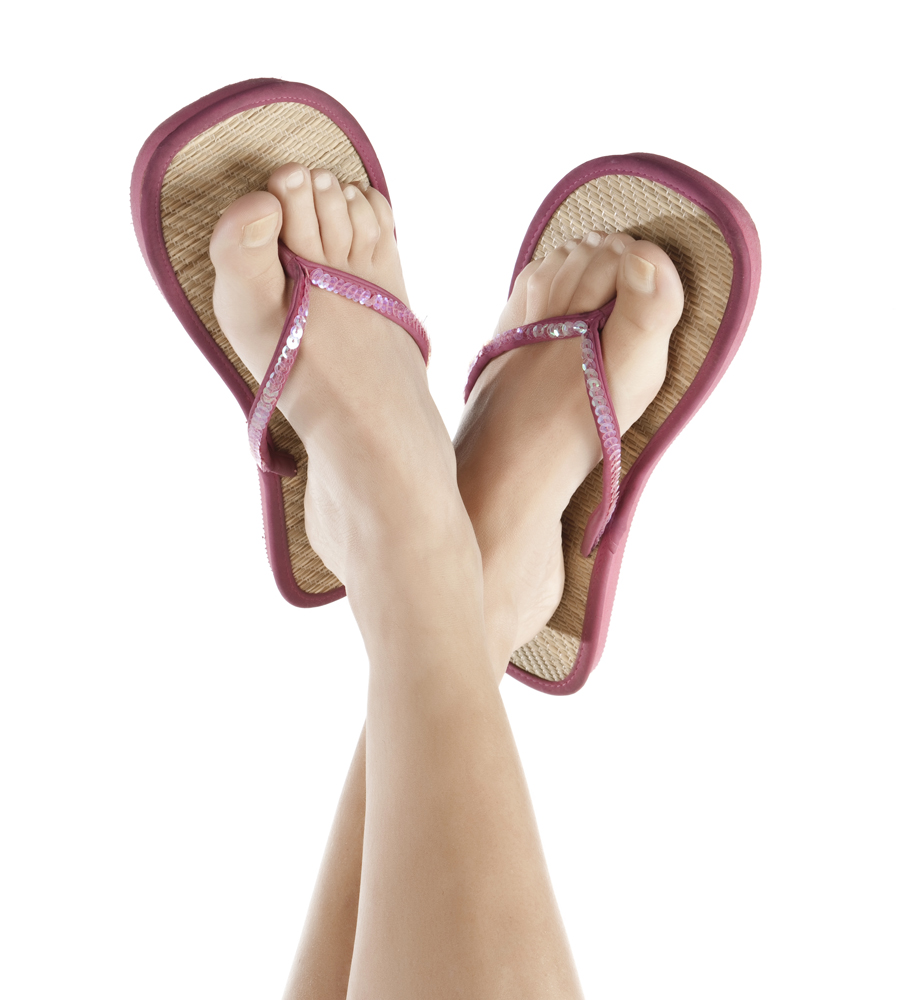 Many people enjoy wearing flip flops, and may be unaware of the potential damage they may cause to the feet. When they are worn for extended periods of time, the ligaments in the arch may become strained. This may lead to pain in the heel and surrounding areas, and can be quite uncomfortable. There is typically little support in the ankle area, and this may lead to ankle sprains. Additionally, the toes may overcompensate for the lack of support in the front of the shoe, and a condition known as hammertoe may develop. If you want to wear flip flops for the majority of the day, it may be beneficial to choose shoes that have a supportive outer sole, which may be helpful in providing the stability the feet need. If you would like additional information about how flip flops may affect the feet, it is suggested to consult with a podiatrist.
Many people enjoy wearing flip flops, and may be unaware of the potential damage they may cause to the feet. When they are worn for extended periods of time, the ligaments in the arch may become strained. This may lead to pain in the heel and surrounding areas, and can be quite uncomfortable. There is typically little support in the ankle area, and this may lead to ankle sprains. Additionally, the toes may overcompensate for the lack of support in the front of the shoe, and a condition known as hammertoe may develop. If you want to wear flip flops for the majority of the day, it may be beneficial to choose shoes that have a supportive outer sole, which may be helpful in providing the stability the feet need. If you would like additional information about how flip flops may affect the feet, it is suggested to consult with a podiatrist.
Flip-flops can cause a lot of problems for your feet. If you have any concerns about your feet or ankles, contact Dr. Michael D. Garvin from Florida. Our doctor will assist you with all of your foot and ankle needs.
Flip-Flops and Feet
Flip-flops have managed to become a summer essential for a lot of people. While the shoes may be stylish and easy to slip on and off, they can be dangerous to those who wear them too often. These shoes might protect you from fungal infections such as athlete’s foot, but they can also give you foot pain and sprained ankles if you trip while wearing them.
When Are They Okay to Wear?
Flip-flops should only be worn for very short periods of time. They can help protect your feet in places that are crawling with fungi, such as gym locker rooms. Athlete’s foot and plantar warts are two common fungi that flip-flops may help protect your feet against.
Why Are They Bad for My Feet?
These shoes do not offer any arch support, so they are not ideal for everyday use. They also do not provide shock absorption or heel cushioning which can be problematic for your feet. Additionally, you may suffer from glass cuts, puncture wounds, and stubbed toes since they offer little protection for your feet.
More Reasons Why They Are Bad for Your Feet
- They Slow You Down
- May Cause Blisters and Calluses
- Expose Your Feet to Bacteria
If you have any questions, please feel free to contact our offices located in Port St. Lucie, FL . We offer the newest diagnostic and treatment technologies for all your foot care needs.
